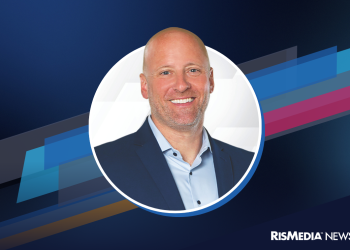The multiple listing service (MLS) has long been an integral part of the real estate business, for brokers, agents and the consumers they serve. But MLSs have evolved beyond their initial role to provide greater resources and technology to their broker and agent partners, and move the real estate transaction into the future for buyers and sellers.
At RISMedia’s Real Estate’s Rocking in the New Year virtual conference, a session titled, “Maximizing the Value of Your MLS Relationship,” was moderated by John Featherston, founder, president and CEO of RISMedia. It included panelists Art Carter, CEO, California Regional MLS-CRMLS; Bob Hale, president and CEO, Houston Association of REALTORS® (HAR); and Dionna Hall, CEO, BeachesMLS. Discussed were strategies for maximizing the broker/MLS relationship to better serve all those involved in the real estate transaction.
John Featherston: Bob, one of the ways HAR has been so successful is by creating and maintaining great relationships with your agents, brokers, managers and owners. How are you able to do that?
Bob Hale: We’re in the people business, and relationships are critical to the success of everything we do, so we’ve looked at how we interact with our agents, managers and brokers. We have a Facebook Live show every Monday morning, and our members may watch interviews with the Houston-area Congressman, the mayor of Houston, a national industry leader or a staff member, talking about one of the latest tools we’ve created. There is what we call Management Central, which is a specific program geared to the managers. We have a quarterly luncheon, and they hear everything from legal topics that can benefit them to new tools that HAR may have created.
We’ve also held a broker summit, and invited our 11 largest brokers. It was an opportunity to hear what their problems and issues are, and what we can do to help them. Lastly, we are really big into surveying. We have a panel of 11,000 Houston-area consumers who have opted into being surveyed about the market, about what we can do as REALTORS® to make their life easier. And we also survey our members continually to find out what they need and what we can do to help them. I also think it’s critical that the CEO has the cell number of every large broker and every manager to stay in constant touch.
JF: Earlier this year, Art and Dionna, your organizations, along with Bright MLS and a few others, started a company, REdistribute, focused on broker data transparency and protecting the value of the MLS while providing your brokers a possible financial return on their listings. Please tell us about this company.
Dionna Hall: California Regional MLS and Bright MLS founded a data company that my BeachesMLS is a part of. Along with some other MLSs, REdistribute seeks to cut out the so-called middleman who’s distributing the broker and MLS’s data now so that we, the MLS, can create data transparency, data protection, and what the brokers may appreciate most, a monetary return for the data that they provide the MLSs.
For many years, other companies have been monetizing our broker data without our brokers being compensated for it, and REdistribute helps right that wrong. We all know that brokers are being confronted with industry disruptors, reduced profit margins and internal and external influences that are greatly affecting the visibility of their business. It is imperative that all of our MLSs fully understand these issues. We need to provide these tools and these resources and this information to enable our brokers to adapt and thrive. I think one of the most exciting things about REdistribute is that it’s actually up and running.
Art Carter: Our brokerage communities need to understand what it is that we’re trying to do with the platform in and of itself. I’ve been doing this for a long time, and there’s always been that controversy about MLS going out and selling data. The reality is that the data is out there and it’s important that it is out there. It’s important for the financial markets and mortgage companies to have access to the data in order to grease the wheels of the marketplace. And as much as the brokers and agents have that close attraction and attachment to the sales of properties, the financing pieces of it need to occur very quickly in order for all sides to be served on the seller and buyer sides as well.
So the data being out there is important, but it has been monetized by people who are not providing direct benefit back to the brokerage community and the agents who are curating and creating it in the first place. We are really excited to get this initiative up and running and out there in order to start producing some of those streams of revenue back for our brokerage community this year.
JF: Bob, how can the MLSs better serve as a partner to your brokers in this shifting market?
BH: One thing we try to do is keep them informed about what we see happening in the market. We’ve created a number of things. One is a monthly HAR housing affordability index and rental affordability index. The members love it, but who really loves it is the media. They’re all over it. The second thing we’ve done is our young professional network, at the first of each year, hosts an economic forecast presented by the local chief economist and members. Again, the brokers eat that up because it gives them an idea of what’s going to happen during the following year. And then we provide a weekly activity snapshot that includes statistics from the prior week for new listings, pending listings, off-market listings, closings, showings, open houses and views of listings on har.com. So they have a comparison for the prior week, plus we provide the same thing on a monthly activity snapshot.
We also produce something called the Edge, which is a slide deck that we email to every broker and every manager. It includes market updates, industry news and things they can present at their sales meetings. Lastly, I’ve created a weekly newsletter called Real Insight. I cover topics like what’s going on in the market, portals, technology, climate change and other things. This is read by as many as 27,000 members on a Friday morning. We’re trying to keep them up to date.
JF: Dionna?
DH: Our brokers want to make sure they get what is happening in their marketplaces, and forecasting in the future. We’ve doubled down our market statistics and the tools our brokers can use. We hired a larger communications team, specifically when it comes to doing videos for our brokers and their agents, to make sure they’re absorbing this information in the format that is going to be the easiest for them to understand and reach the most people.
JF: BeachesMLS has had great success in executing a local consumer campaign. How important is it to your brokers in the marketplace?
DH: Our association, the Broward, Palm Beaches and St. Lucie REALTORS®, which also owns our MLSBeaches, recently found great success executing our first-ever consumer campaign, titled Only a REALTOR®. This campaign is consumer- and member-facing. We believe that it’s an important time for all of us to talk about the value our industry brings to the consumers. There are so many lawsuits challenging the value of a REALTOR® and challenging the value of an MLS. We are now calling MLSs our local broker marketplaces. Our campaign showcases how there is no substitute for a REALTOR®, and it’s not worth not having one by your side.
The reason we decided to take this campaign local instead of just running the national campaign was because we wanted to make sure this one had the look and feel of our local marketplaces that consumers could really identify with.
JF: Art, what are you doing?
AC: A lot of what we’re doing is focused on this element of data and the brokerage communities. It is a model of cooperation that is not duplicated in the United States or really anywhere in the world. We are diving into the data at a deeper level and delivering information to our brokerage community on what we call velocity data, which is that everybody’s always aware of what listings are going into the system, depending when they’re going to be sold.
JF: So you’re helping your members facilitate more business within their respective marketplaces, and recognize the value of the data and information. Are there other important technologies that you’re all offering that are important to the success of your members in 2023?
AC: One of the biggest things that most MLSs are embracing going forward is AI. We’ve been throwing away terabytes of data on a monthly basis. Utilizing AI can not only mine that data, but will be able to give our brokerage and agent community information they don’t have. Easing the process of dealing with the technology that we do have is going to be a key part of what most MLSs across the country are moving toward.
JF: Bob, your thoughts?
BH: We created ShowingSmart, our in-house house-showing service. It was created 100% from member input. Almost 40,000 members have used it to make appointments. Also, 40% of Houstonians speak Spanish, so we put it into Spanish as well. So when the broker sends the consumer information, they can read it in English or Spanish. The other thing we created was what’s called MLS Platinum, a bundling of products for $129 annually.
JF: Dionna, the broker concierge team that you’ve created has been out in your marketplace serving brokers at the highest level. You focus on top-notch customer service. What is that team doing for not just the brokers you serve, but the entire membership?
DH: Our MLS is a product of many mergers. We now have about 42,000 subscribers, and one of the things that our brokers were most concerned about when we did these mergers was making sure we did not lose focus on their agents’ providing customer service. We were able to cut a lot of red tape and streamline the services and technology, but they wanted to make sure that they knew who to contact if there was an issue, and that they had really great customer service. We recognize that real estate is not nine to five, that brokers and agents are servicing their clients around the clock, nights, weekends and holidays.
We get information from our brokers telling us what their pain points are in the marketplace so we can be responsive to their needs. We are also seeing that there are a lot of legal issues going on in the marketplace. We can hear about the first scam in the marketplace and spread the word to the brokerage communities so they can be prepared for it.
JF: What are you forecasting this year, as far as your organizations? What are you going to be doing a little bit differently than you did six months ago?
AC: We’re going to be moving a lot more nimbly than we have in the past. Sixty percent of my membership has never seen a down market before, so there’s going to be a lot of education, a lot of walking people through the processes and the marketplace.
DH: We’re still looking for ways to continue to open up our marketplace. South Florida has seen great migration from the entire nation, so our brokers are not just in the South Florida marketplace. We are seeing them from all different marketplaces. We have continued to really see how we can streamline our technologies, make sure that we hook into marketplaces that make sense for our brokers. We are continuing a huge data share so our brokers can go back and forth between the many different areas in south Florida, which really helps with inventory levels. Anything that’s going to make it easier for them to do business in the marketplace is what we are continuing to explore.
BH: We’re looking at what can impact our members. We just learned that 58% of people that live in Houston are renters, not homeowners, so that’s a major factor we have to be aware of. If you look at predictions for 2023, they’re all over the board. The good news is that things will soon be a lot better, so we just have to get past this here.












